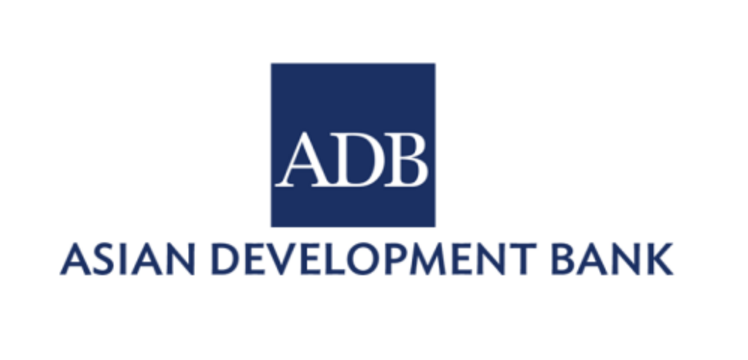ADB calls for integrated fiscal, financial management reforms in Asia-Pacific

By MG News | May 27, 2024 at 11:10 AM GMT+05:00
May 27, 2024 (MLN): Fiscal policies to increase tax revenues and financial management systems to spend them are inextricably linked and to improve funding for development in Asia and the Pacific, fiscal and financial management reforms need to be pursued simultaneously, says Asian Development Bank (ADB).
Domestic resources are the single largest source of development finance. As estimated funding to tackle development challenges in Asia and the Pacific surpasses $1 trillion a year, domestic resource mobilization in developing countries has come under increased attention.
Domestic resource mobilization is where a country raises and spends its own financial resources (e.g. taxes) for public goods and services.
Improving domestic resource mobilization can help countries decrease their need to borrow and increase their finances for development.
Efforts to increase domestic resource mobilization have focused more on one side of the equation, fiscal policies to increase tax revenues, and less on the other, financial management systems for effective expenditure management.
The data indicate that countries where governments credibly demonstrated sound financial management of domestic resources and had robust systems to oversee its use and minimize its waste, were also able to achieve higher levels of domestic resource mobilization.
The most common metric for measuring domestic resource mobilization is the tax to GDP ratio. It was found that tax revenues tend to increase when transparency, oversight, and corruption perceptions improve.
Transparency, oversight, and corruption are three critical links between fiscal and financial management.
Transparency in budgeting and accounting helps citizens understand how public funds are spent. Transparency demonstrates how effectively governments plan and use tax funds.
Timely availability of and accessibility to information on government budgets and government expenditures are crucial for understanding what budget decisions have been made with tax funds and how they have been spent.
Budget transparency worldwide is poor, particularly in Asia and the Pacific. The 2021 Open Budget Survey found the average global score for transparency was 45 out of 100, indicating that public availability of budget information is limited in most countries.
The average score for developing countries in Asia and the Pacific region is marginally better at 48, with only six countries above the acceptable transparency score of 61.
Efforts to increase domestic resource mobilization must balance fiscal policies to raise tax revenues with strong financial management systems for effective expenditure.
High corruption is linked to lower tax revenues and reduced public trust in government.
Corruption erodes public confidence and reduces tax morale (i.e. intrinsic motivation of citizens to pay taxes to governments).
Several studies have concluded that countries with high levels of corruption tend to have lower tax to GDP ratios, with an International Monetary Fund paper estimating this at 2.7% decline in tax to GDP ratio for every one-point deterioration in corruption index.
Corruption also results in wastage and misuse of funds, and if unchecked for a prolonged period, erodes public confidence in governments to manage tax funds.
The 2023 Transparency International report notes that Asia and the Pacific has a long stagnant average score of 45 out of 100, with developing countries in the region averaging 36 out of 100.
Strong oversight of public funds assures citizens that tax funds are being prudently used. Assurance comes from timely external audit of government accounts and legislative scrutiny of budgets and public expenditure – crucial for holding governments accountable for use of tax revenues.
Auditors provide independent assurance on the reliability of government accounts, and report on any misappropriation, misuse, or wastage of public funds.
Legislative scrutiny, based on audit reports and other available information, is also needed to interrogate government officials on how they implemented the budget and delivered on their policies and programs.
The average score for external audit and legislative oversight for developing countries in Asia and the Pacific region is 52 with only eight countries above the acceptable score of 61.
Copyright Mettis Link News
Related News
| Name | Price/Vol | %Chg/NChg |
|---|---|---|
| KSE100 | 125,627.31 258.99M |
1.00% 1248.25 |
| ALLSHR | 78,584.71 1,142.41M |
1.16% 904.89 |
| KSE30 | 38,153.79 69.25M |
0.63% 238.06 |
| KMI30 | 184,886.50 91.38M |
0.01% 13.72 |
| KMIALLSHR | 53,763.81 554.57M |
0.54% 290.61 |
| BKTi | 31,921.68 33.15M |
1.78% 557.94 |
| OGTi | 27,773.98 9.65M |
-0.40% -112.21 |
| Symbol | Bid/Ask | High/Low |
|---|
| Name | Last | High/Low | Chg/%Chg |
|---|---|---|---|
| BITCOIN FUTURES | 107,725.00 | 107,770.00 107,555.00 |
-510.00 -0.47% |
| BRENT CRUDE | 66.63 | 67.20 65.92 |
-0.17 -0.25% |
| RICHARDS BAY COAL MONTHLY | 97.00 | 97.00 97.00 |
1.05 1.09% |
| ROTTERDAM COAL MONTHLY | 107.65 | 107.65 105.85 |
1.25 1.17% |
| USD RBD PALM OLEIN | 998.50 | 998.50 998.50 |
0.00 0.00% |
| CRUDE OIL - WTI | 64.93 | 65.01 64.83 |
-0.18 -0.28% |
| SUGAR #11 WORLD | 16.19 | 16.74 16.14 |
-0.52 -3.11% |
Chart of the Day
Latest News
Top 5 things to watch in this week
Pakistan Stock Movers
| Name | Last | Chg/%Chg |
|---|
| Name | Last | Chg/%Chg |
|---|



